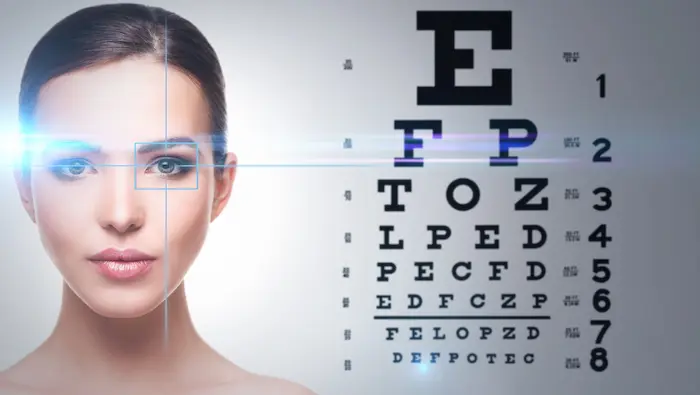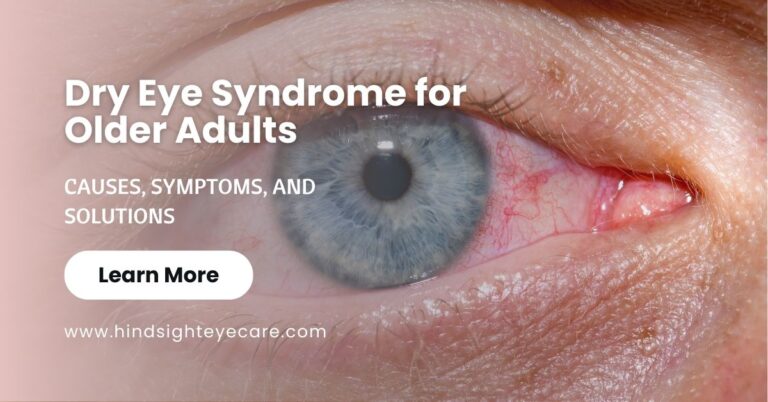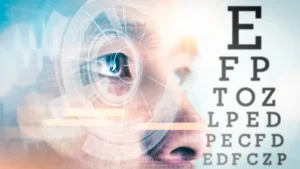Comprehensive Eye Exam vs Screening
Comprehensive eye exam vs screening: When was the last time you had your eyes checked? For many adults, especially those in The Villages, Florida, the answer might involve a quick vision screening at a local health fair or pharmacy. While that’s a good starting point, it’s not the same as a comprehensive eye exam vs screening. Understanding the difference between these two can make a big impact on your vision health as you age. This blog is your go-to guide to understanding the distinctions, why they matter, and how a full exam can offer peace of mind for you and your loved ones.
Why Eye Health Matters More as You Age
Comprehensive eye exam vs screening: Eyesight often changes as we grow older, with conditions like cataracts, glaucoma, and dry eye syndrome becoming more common. Many of these issues progress silently—meaning you might not notice symptoms until significant damage has occurred. According to the CDC, roughly 12 million people over the age of 40 in the U.S. have some form of vision impairment, and early detection through regular eye exams is crucial to maintaining your quality of life as you age.
This makes it especially important to understand what kind of eye care you’re receiving. A vision screening may sound sufficient, but it’s not designed to provide the depth of care many adults—especially those 55 and older—truly need.
What Is a Vision Screening?
A vision screening is a quick, preliminary test that’s often used to identify potential vision problems. These screenings are usually administered in non-clinical settings—such as health fairs, schools, or even your local pharmacy. They’re often conducted by personnel who aren’t eye care specialists, like school nurses or trained volunteers.
What Vision Screenings Can Do
- Spot Potential Issues: These tests can flag basic vision impairments, such as difficulty seeing at distances or reading fine print.
- Quick and Accessible: They’re free or low-cost and very convenient, making them a good tool for identifying obvious issues.
Limitations of Vision Screenings
Comprehensive eye exam vs screening: While vision screenings serve a purpose, they fall short in several critical areas. They can’t detect any eye disease, assess your eye health, or provide a prescription for eyeglasses or contact lenses. Essentially, they offer an overview, but not the deep insight into your eye health you need for proactive care.
For more information about common eye conditions, this resource by the National Eye Institute offers a useful overview.
What Is a Comprehensive Eye Exam?
Comprehensive eye exam vs screening, on the other hand, is a thorough evaluation conducted by an optometrist or ophthalmologist. This type of exam doesn’t just look at how well you can see—it assesses the overall health of your eyes and can detect underlying conditions before symptoms even appear.
What Happens in a Comprehensive Eye Exam
Here’s what you can typically expect during the process:
- Medical History Review: Your doctor will discuss your medical history, including any current medications, family history of eye conditions, and any symptoms you’ve been experiencing.
- Visual Acuity Test: This involves reading letters on an eye chart to determine how clearly your eyes can see at various distances.
- Refraction: This test helps identify your corrective lens prescription for glasses or contacts.
- Eye Health Evaluation: Your optometrist will examine your eye structures in detail, often using advanced technology like a slit lamp.
- Screening for Eye Conditions: Tests for conditions like glaucoma, cataracts, or age-related macular degeneration (AMD) will be conducted.
Benefits of Comprehensive Eye Exams
- Prevention Is Key: Early detection of glaucoma, AMD, or diabetic retinopathy can help prevent irreversible damage.
- Accurate Prescriptions: Pinpointing the exact correction your vision needs ensures you’ll see as clearly as possible.
- Full Health Check: Did you know eye exams can even detect signs of systemic health conditions like diabetes or high blood pressure?
For example, persistent dry eye syndrome can have a significant impact on your life, and it might not be caught during a quick vision screening. Learn more about treating and managing dry eyes here.
Why The Villages Residents Should Choose Comprehensive Eye Care
Comprehensive eye exam vs screening: Residents of The Villages enjoy an active, vibrant lifestyle. Whether you’re golfing, reading by the lake, or enjoying time with loved ones, your quality of life depends on your ability to see clearly and comfortably. Skipping a comprehensive eye exam could put that at risk.
Vision screenings might be more convenient, but they don’t offer the tailored care needed to address age-specific challenges like presbyopia or cataracts. By scheduling routine comprehensive eye exams, you’re taking control of your vision health—and your overall well-being.
If you wear contact lenses, keeping your prescription up-to-date is another crucial reason to schedule routine exams. Learn more about contact lenses and prescription maintenance here.
Common Questions About Eye Exams
1. How Often Should I Have a Comprehensive Eye Exam?
The American Optometric Association recommends adults aged 55+ have a comprehensive exam every 1–2 years, or more frequently if advised by your doctor.
2. Does Insurance Cover Comprehensive Eye Exams?
Many vision insurance plans cover routine comprehensive exams. Be sure to check your specific coverage details.
3. Can I Prepare for My Exam?
Yes! Bring any current eyewear, a list of medications, and be ready to discuss any symptoms or issues you might have noticed.
Book Your Comprehensive Eye Exam Today
Comprehensive eye exam vs screening: Don’t leave your vision health to chance. While vision screenings are helpful for catching basic issues, they’re no substitute for the in-depth care a comprehensive eye exam provides. Whether you’re managing existing conditions or simply prioritizing your overall health, full exams ensure you’re taking the best possible care of your eyes.
At Hindsight Eye Care, we pride ourselves on delivering expert, personalized care to residents of The Villages, Florida. Our experienced optometrists are here to answer your questions, address concerns, and provide the peace of mind you deserve.
Schedule your comprehensive eye exam today or contact us to learn more about our services, including contact lenses and fittings. Don’t wait—it’s time to see the difference professional eye care can make!




